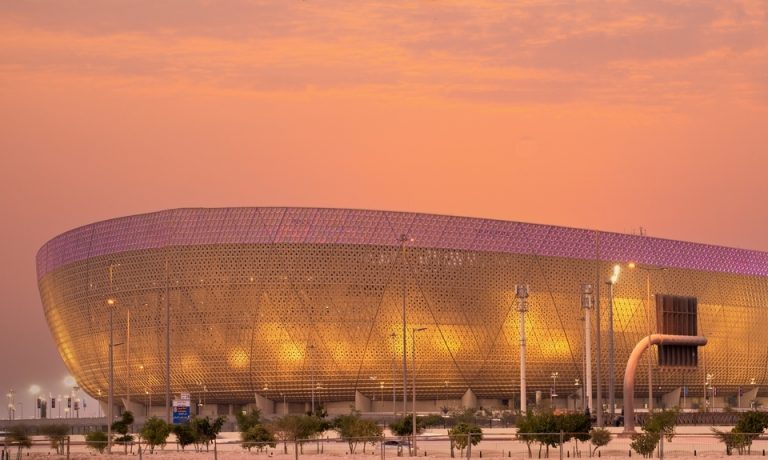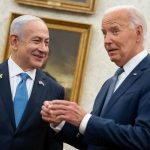
Middle East: How Oil is Funding the Post-Oil Era
You pictured them in football? They’re actually investing in healthcare. You thought their projects were all mega-scale? They have lighter ones too. Middle Eastern sovereign wealth funds are diversifying fast, betting on resources more sustainable than oil to make new…

Artificial Islands: A Legal Object Adrift at Sea
As sea levels continue to rise, reshaping coastlines and threatening entire nations, bold new ideas are emerging. Among them: artificial islands — not in science fiction, but in the plans of architects, engineers, and policymakers seeking to confront climate displacement…

The “Clash of Civilizations”, an oversimplification of World Order?
We sometimes say that the simple things in life are often the best. But does this also apply to the sciences? In 1993, Professor Samuel Huntington attempted this in geopolitics. His theory of international relations was based on a division…
Les plus lus
Medias
All articles

Putin mired in the “paradoxes of strategy”
Each month, Frédéric Munier, Director of the School of Geopolitics at SKEMA Business School, publishes a column in the magazine Pour l’Éco. One year after the invasion of Ukraine by Russia, he focused on a paradox: the world’s second military power expected…

France-Africa: the post-colonial divorce
Each month, Frédéric Munier, Director of the School of Geopolitics at SKEMA Business School, publishes a column in the magazine Pour l’Éco. In April 2023, he focused on the relationship between France and Africa. A pitiful departure from Burkina Faso,…

The new ‘Trumpian’ world order in sport, illustrated by golf
Saudi Arabia has just kick-started a new era in world sport: the men’s professional golf circuits, the PGA Tour, the DP Tour and the LIV, backed by the Saudi sovereign wealth fund, have merged. It’s a deal that will take…

Champions League Final: Abu Dhabi and China already big winners
Who will win the Champions League, Manchester City or Inter Milan? From a sporting point of view, all football fans will be in front of their screens to find out. But from a geopolitical one, reaching the final of Europe’s…

Strive to Survive – Why Europe’s in Danger of Losing its F1 Offspring
As Formula 1 is back in the spotlight thanks to the release of the fifth season of Netflix successful series Drive to Survive, it is no accident that the F1 World Championship will start once again in Bahrain this year. The biggest car competition needs to adapt to the geopolitical changes of the World. And to deal with new stakeholders' interests...

Why Ronaldo’s move to Saudi Arabia increases the chances of an AfroEurasian World Cup
Cristiano Ronaldo’s move to Saudi Arabian club Al Nass is much more than sporting news. It reveals a great deal about Saudi Arabia’s ambitions, particularly its desire to establish a position as an AfroEurasian hub. It is an interesting coincidence,…

World Cup 2022: who won the prize for ‘soft power’?
Argentina wasn’t the only winner of the 2022 Fifa World Cup in Qatar, there were other, bigger soft power victors. After four weeks, 64 games and more than a decade of controversy, Argentina has won the Fifa men’s World Cup in Qatar. And…

“The next World Cups might be consumed inside the metavers”
World Cup in Qatar is about Football, and Geopolitics. Every week, Simon Chadwick analyses the main aspects of the tournament. Today, the Professor of Sport and Geopolitical Economy at SKEMA Business School tells us about the various impacts of the tournament on the economy,…

“Not only Qatar is projecting its soft power during this World Cup”
World Cup in Qatar is about Football, and Geopolitics. Every week, Simon Chadwick analyses the main aspects of the tournament. Today, the Professor of Sport and Geopolitical Economy at SKEMA Business School tells us about soft power, sportswashing and transnationalism. Let’s hear him. Is…

“Saudi Arabia sees Cristiano Ronaldo as an ambassador to host the 2030 World Cup”
World Cup in Qatar is about Football, and Geopolitics. Every week, Simon Chadwick analyses the main aspects of the tournament. Today, the Professor of Sport and Geopolitical Economy at SKEMA Business School tells us about the Gulf region, Saudi Arabia and the…

World Cup in Qatar: a week of intense debate
World Cup in Qatar is about Football, and Geopolitics. Every week, Simon Chadwick analyses the main aspects of the tournament. Today, the Professor of Sport and Geopolitical Economy at SKEMA Business School tells us about fans, sponsors and the building of the Qatari nation. Let's hear him.

Gone with the sand: what will we remember of brand Qatar?
The current FIFA World Cup is the most valuable part of Brand Qatar to become a synonym for excellence in the eyes of some international observers and consumers. But faced with a series of controversies, will the strategy aimed at making the Brand Qatar ‘the best’ be a success or a failure?

World Cup: Qatar rushes to win the mind game
As the World Cup is coming, Qatar is struggling with increasing criticism from every part. So as not to let the event be spoiled, the emirate hardens its attitude and hurries to finish the preparations, in order to change the perceptions of the World.

Sanctions, a geoeconomic weapon in the age of globalisation
In 1989, in a prophetic article, Edward Luttwak heralded the advent of geoeconomics. He believed that in the dual context of globalisation and the end of the Cold War, power relationships would be governed more by economics than by military might. The EU’s unprecedented sanctions against Moscow following the invasion of Ukraine have made this revolution in the expression of power strikingly relevant once again. But are sanctions truly effective?

Chinawood – There’s no business like show business
In the midst of the economic war between China and the United States, a new, more discreet front has opened up: filmmaking. In a bid for influence, China has launched a bold strategy to develop its film industry. Is Chinawood supplanting Hollywood?

Geopolitics of climate or geopolitical climate
On 9 August 2021, the IPCC published its latest report. It presents troubling possible climate futures, highlighting in particular an alarming rise in temperatures despite the commitments made by governments. It is clearer than ever that the action, or inaction, of States is pivotal in this matter.







